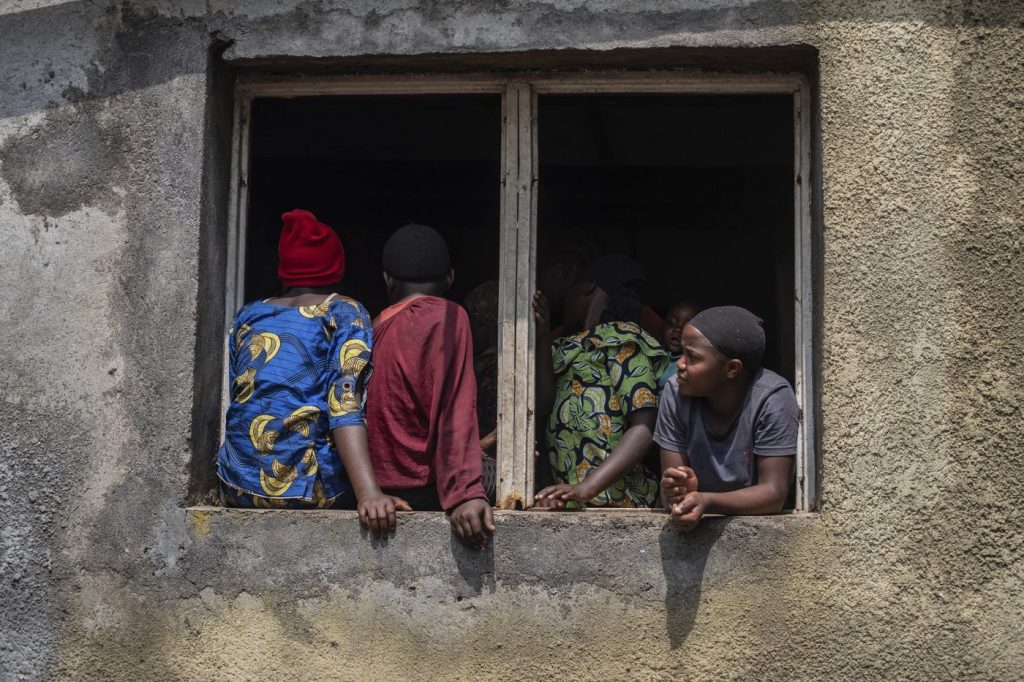DAKAR, Senegal – The Democratic Republic of Congo (DRC) and Rwanda are poised to sign a significant peace agreement facilitated by the United States. This deal is aimed at addressing the longstanding and deadly fighting in eastern Congo, a region plagued by conflict involving over 100 armed groups, the most notable being the M23 rebel group, which is believed to be supported by Rwanda. The signing ceremony is scheduled to take place in Washington on Friday.
The peace deal is not only pivotal for ending violence but also holds potential benefits for the U.S. government and American companies seeking access to critical minerals found in this region. Congo is rich in mineral resources, which have remained largely untapped amid ongoing turmoil. The DRC's current humanitarian crisis has resulted in the displacement of approximately 7 million people, leading the United Nations to describe the situation as one of the world's most complex and serious humanitarian crises.
President Trump recently hailed the deal as a "Great Day for Africa and ... for the World," emphasizing its significance amid ongoing peace talks that involve multiple parties, including the African Union and Qatar. Officials have highlighted that the agreement will promote respect for territorial integrity, prohibit hostilities, and outline steps for the disengagement, disarmament, and conditional integration of non-state armed groups, according to Tommy Pigott, the U.S. State Department deputy spokesperson.
Despite the optimistic outlook regarding the peace deal, there are significant doubts about its effectiveness. The M23 rebels have indicated that they do not consider the agreement binding, as their participation in the proposed deal has been limited. Corneille Nangaa, leader of the Congo River Alliance, which includes M23, stated in March that any negotiations concerning them must include acknowledgment of their grievances. This sentiment was echoed by M23 spokesman Oscar Balinda, who emphasized that the U.S.-facilitated agreement does not pertain to the rebels.
Analysts suggest that the United States' commitment to resolving the conflict may hinge on the extent of access it secures to the valuable minerals discussed in ongoing negotiations. The untapped mineral resources are estimated to be worth as much as $24 trillion, according to the U.S. Department of Commerce, and are crucial to the technology sector globally.
Christian Moleka, a political scientist from the Congolese think tank Dypol, described the upcoming deal as a "major turning point" in a protracted conflict. However, he cautioned that the agreement does not adequately address issues such as war crimes and justice for victims. Moleka criticized the notion of imposing a partnership between victims and aggressors without addressing accountability and reparations as a potentially dangerous proposition that could undermine lasting peace.
Within the North Kivu province, the area most severely affected by violence, many hope that the peace accord will help mitigate the ongoing conflict, but maintain that justice must be prioritized for sustainable peace. Activist Hope Muhinuka from North Kivu stressed that trust in external involvement, including the U.S., should be met with caution, urging locals to seize the current situation as an opportunity for positive change.
This impending peace agreement represents a crucial step in addressing decades of conflict, yet skepticism regarding its potential effectiveness lingers, especially without the involvement of key rebel groups and a firm commitment to justice.











